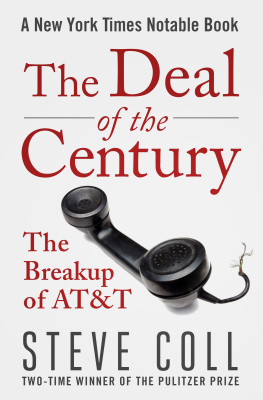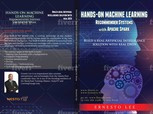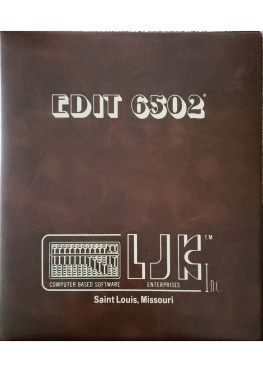FOREWORD
You may think that by putting myself forward in this way, I hope to leave the impression that I know the answers to all the questions in this book. Nothing could be further from the truth. Say that making an 80 on this book was one of the requirements (and not a bad idea at that) for being licensed to drive in the South. I like to think I could pass, but then again you might see me trudging alongside Highway 61 singing,
Well I passed the pallel parkin,
But that culchul quiz was cold,
Lawd Lawd,
Yes I passed the pallel parkin,
But that culchul quiz was cold.
Aint seen no pallel parkin,
Hushpuckena to Merigold.
What state would I be in, by the way? and why? Of course, if I had been the one to put together the questions in this book, myself, I probably could do all right on them. But although I do know quite a bit about southern culture, I cant be expected to know everything that Lisa Howorth and all the other people at the Center for the Study of Southern Culture know. Because thats their job. Theyre up studying southern culture every day from jus kin to jus caint (which means what?), busier than:
a) a one-legged cloggers foot
b) a Memphis lawyer on Judgment Day
c) Daddy that time with the live alligator gar
d) all of the above.
So you can be sure that this book is good wood turned in the grain. All too often the southern culture we see here and there is not the real scuppernong. I was reading in the New York Times just the other day where old John Egerton out of Nashville was saying, With so much bogus barbecue, so much phony pie, Southern cookery is threatened to death by default. I know thats right. People sitting around eating that phony pie, not knowing enough to care. I tell you...
Well Mama may have cussed the dog,
And drank and run around,
And sometimes cooked the pone too long,
But pie-wise she was sound.
She made it out of lard and grit
And peaches and her love,
And evrytime I think of it,
I thank the stars above.
Oh Heaven knows, and so do you,
And Lord knows so do I,
Theres so much bogus barbecue
And so much phony pie.
But Daddy and us children knew
That Mammad rather die
Than to expose her loved ones to
One bite of phony pie.
People are even practicing bogus voodoo! I venture to say so, although I did not grow up with voodoo myself. I grew up with Methodism. So I cannot speak from a lifetime of knowledge. But I have spent quite some time in New Orleans over the years, the vast majority of it at night, and when I read in the New York Times recently this was a completely different article from the one on cooking that there was some kind of nouveau voodoo going on in New Orleans, the hairs on the back of my neck stood up. And I saw that those hairs were on the money, when I read that the head priestess or voodooienne, as the Times put it, herself is white and came [to New Orleans] from Kennebunkport, Me.
Dont Kennebunkport me. I believe George Bush was from there. Im not even going to bother going into voodoo economics, deep doo-doo, all that. I dont have to. This new voodoo thing is so trumped-up that even a New York paper can tell.
Many of the devotees of arriviste voodoo, according to the Times, seem to be white people nose and tongue piercers, middle-aged intellectuals and men with foot-long pony tails-who enjoy the religions drumming and cultural aspects.
There you go. They are in it for the cultural aspects. That is not how culture gets made. I am reminded of the Eudora Welty story (whats the title?) in which concerned local folks are dragging the river for the body of a mans wife who has disappeared, and even the from-back-up-in-the-woods, bordering-on-feral Malones are helping with the net. But the Malones, somebody says, are just in it for the fish.
Dont just be in this book for the cultural aspects, friends. Nor just for the fish. Be in it for the unknown. Until I read this book I dont believe I had ever heard of the Mad Potter of Biloxi or Rebecca Ann Latimer Felton, and I certainly never knew that okra could be used to increase the milk output of cows. Boiled or raw? Raw, Id imagine, just because I cant see who would take the time to fool with boiling up a big enough mess of okra to feed any significant number of cattle; but youd think that if any kind of okra if anything - would loosen up an udder, or anything else, it would be okra that had been boiled. Maybe udder-loosening isnt the point. Certainly no dairyperson would want an udder to get too slick on the outside. One thing about this book: it leads, like the martin to its gourd (who used this figure of speech during the Watergate hearings?), to further study.
Ill tell you something I was startled to learn. I was startled to learn that not only gumbo, tote, goober, and so on come from Africa (I knew all that), but so do unh-uh and uh-huh. It makes sense when you think about it, but then think about it again: This means that until well on into its decline maybe (when, exactly?), European culture was oblivious to unh-uh and uh-huh? Think of the impact on a civilization that assumes it knows everything, for unh-uh and uh-huh to be revealed to it all of a sudden. (Too late, is liable to be the feeling of any southerner who has heard European rock and roll.)
A northern friend of mine was recently seated next to a southern woman at a benefit-for-the-arts banquet in some big city in Ohio or one of those states around in there. The southern woman was transplanted. She said she couldnt stand the North, because it has no culture. My northern friend was nonplussed. There they were, after all, at a banquet for the benefit of the arts. The southern woman sensed his confusion.
Oh I dont mean things like symphonies and operas, she said.
Good point. Symphonies and opera are European culture. All very well, but derivative of a civilization that got way ahead of itself before learning of unh-uh and uh-huh.
You can see the effect of that premature sophistication in American lexicography today: I have not been able to find a single dictionary that bothers even to speculate on where unh-uh and uh-huh come from (although Websters Third goes to the trouble of explaining that it is a disyllabic sound with m-sounds at beginning and end, an h-like interval of voicelessness between, and heavier stress on the first member; in the registering of gratification the voiced members are more prolonged, about equal in stress, and the sound is higher in pitch). And wait till you hear this: All those dictionaries leave out unh-uh entirely.
And claim to be unabridged!
In the bright lexicon of Webster (where was he from?) there is no such word as unh-uh. Its a good thing there are some books coming out of the South.







